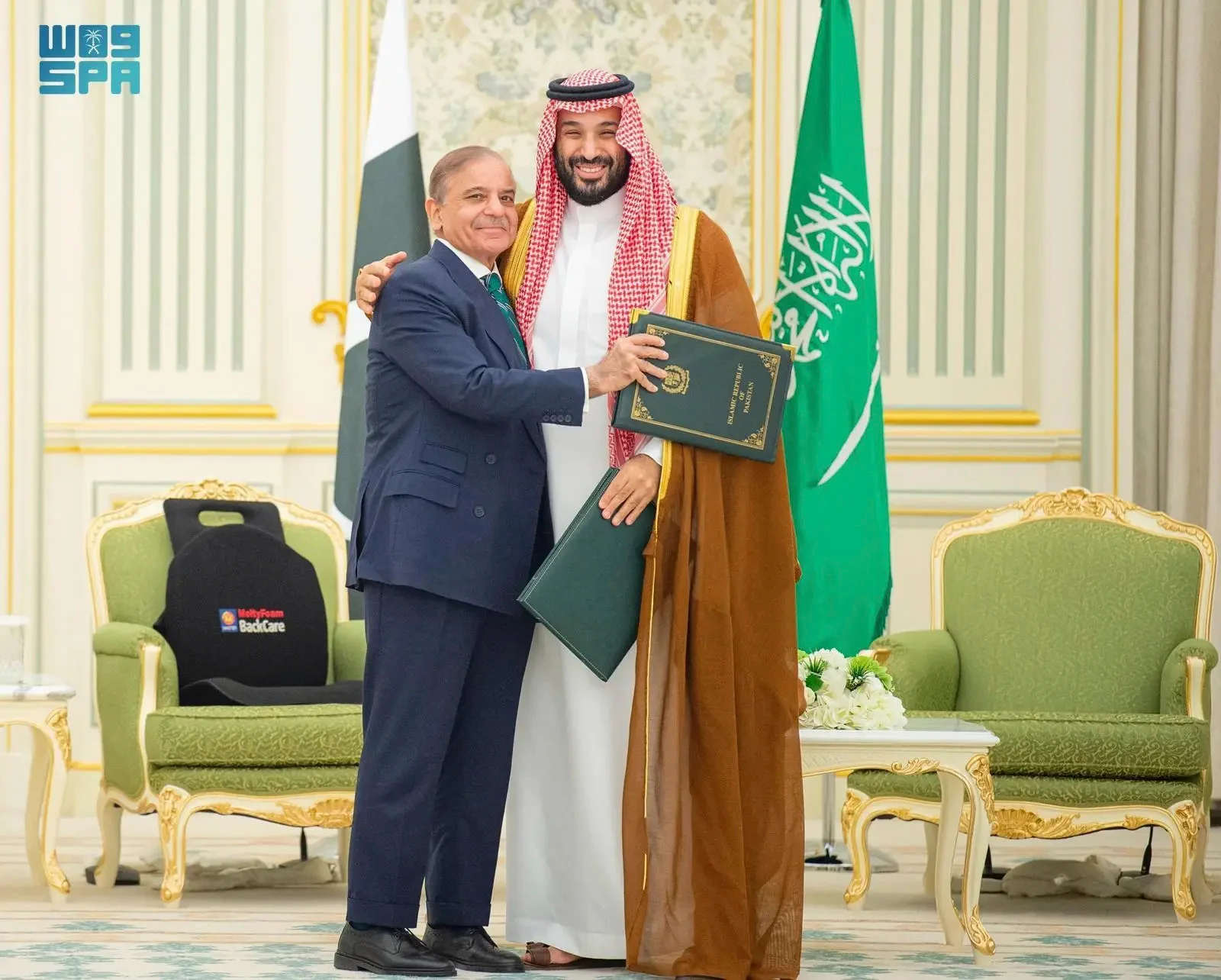By Tom Hussain
Copyright scmp

A week after Israel bombed Qatar, Saudi Arabia has signed a mutual defence pact with Pakistan in what analysts say will be an extension of Islamabad’s nuclear umbrella over the Gulf kingdom and is a clear signal to the United States for failing to intercept Israeli missiles during the attack.
Saudi Crown Prince Mohammed bin Salman and Pakistani Prime Minister Shehbaz Sharif signed the agreement in Riyadh on Wednesday, which stipulated that “any aggression against either country shall be considered an act of aggression against both”.
The agreement “aims to develop aspects of defence cooperation between the two countries and strengthen joint deterrence against any aggression”, according to a joint statement issued by Islamabad and Riyadh. It was based on the “historic partnership extending for nearly eight decades” and “shared strategic interests and close defence cooperation” between Pakistan and Saudi Arabia.
Although the statement did not mention Pakistan’s nuclear arsenal, the only one possessed by a Muslim-majority country, analysts said it would be part of its arrangement with Saudi Arabia.
“This allows Saudi Arabia to benefit from the Pakistani nuclear umbrella,” said Ali Shihabi, a prominent Saudi political commentator reputed to be close to the crown prince.
The mutual defence pact “rejuvenates” Saudi Arabia’s military relationship with Pakistan, which deployed 10,000 troops along the kingdom’s border with Iraq during the Iran-Iraq war in the 1980s.
“It’s formalising something that has been a de facto situation for decades now,” Shihabi told This Week In Asia.
According to Pakistani analyst Iftikhar Firdous, the pact was “symbolically powerful and strategically consequential”.
For Pakistan, “it’s a historical status booster with religious connotations”, which brought it into the “Arab world and the larger Levant’s politics like never before”.
“Pakistan will be viewed as a direct deterrent to Israel,” Firdous said in a social media post. For Saudi Arabia, “it’s a hedge against uncertainty and a signal of independence”.
Although there was no specification of nuclear guarantees in the agreement, “Pakistan’s arsenal casts a deterrence shadow [which] gives Saudi Arabia a de facto nuclear umbrella without formally breaching non-proliferation norms”, Firdous said.
“But it increases the chance that local conflicts could spiral into regionalised wars with nuclear consequences,” he warned.
According to a report issued by the Stockholm International Peace Research Institute in June, Pakistan is estimated to possess 170 nuclear warheads, along with a fleet of ballistic missiles, including the Shaheen-III, which has the range to hit Israel.
Pakistan has long maintained that its nuclear weapons are exclusively meant as a deterrent against India, which the report assessed as having 180 atomic weapons.
Israel is estimated to have a stockpile of 90 warheads, although it officially denies having a nuclear weapons programme.
Concerns about Pakistan’s growing mastery of propulsion technology systems prompted the outgoing administration of then US president Joe Biden to declare Islamabad’s missile programme an “emerging threat … fundamentally focused on us” last December.
A complication arising from the defence agreement is Pakistan’s long history of war with India, the second largest importer of Saudi crude oil and petrochemicals, according to analysts.
Shihabi said Saudi Arabia would “try to maintain its excellent ties with India”, and was optimistic India would “understand Riyadh’s reasons for formalising this alliance with Pakistan”.
India’s ministry of external affairs said on Thursday that it “was aware” that the Saudi Arabia-Pakistan pact had been under consideration and New Delhi would study its implications for “regional and global stability”.
However, Sushant Singh, an Indian journalist and lecturer on South Asian Studies at Yale University, felt the agreement “can’t be good news for India, irrespective of what happens in real-life situations”.
“It drags another foreign power into the India-Pakistan conflict and constrains India,” Singh said in a social media post, adding that “the real significance of the pact is about Pakistan’s nukes and military for the Saudis”.
Firas Maksad, Middle East and North Africa managing director of the Eurasia Group risk consultancy, said the pact was “less about breaking with the US and more about Riyadh signalling deep frustration with the US after Israel’s attack on Qatar”, a fellow Gulf Cooperation Council (GCC) country.
The GCC also includes the United Arab Emirates, Kuwait, Oman and Bahrain.
“Many Arab states believe” US President Donald Trump knew about Israel’s attack targeting Hamas negotiators in Doha but did not use American forces based in the emirate to stop it, Maksad said in a social media post.
By signing the pact with Pakistan, the Saudi crown prince “is telling Washington: we’re diversifying our options”.
“But don’t get this wrong – Saudi Arabia still is and will remain dependent on the US for security,” he said. “This is hedging, not decoupling.”
Hours before the pact with Pakistan, Saudi Arabia and the US concluded a week of military exercises in the kingdom, including the largest counter-drone exercise ever held in the Middle East.
At an emergency Arab-Islamic summit held in Doha earlier this week, Pakistan proposed the establishment of a military alliance for member states modelled after Nato.
The communique issued at the summit’s conclusion on Monday welcomed an Arab League decision on September 5 – four days before the Israeli air strikes on Qatar – for a “shared vision for security and cooperation in the region”.
It reaffirmed “the concept of collective security and shared destiny of Arab and Islamic states, the necessity of unity in facing common challenges and threats, and the importance of beginning to put in place the required implementation mechanisms”.
The same day, the GCC activated its joint defence mechanism, Peninsula Shield, for the first time since Saddam Hussein’s Iraqi forces invaded Kuwait in 1990.
Hussein Ibish, a senior resident scholar of the Washington-based Arab Gulf States Institute, told This Week In Asia that military alliances between Arab and relatively powerful Muslim states like Pakistan and Nato member Turkey “cannot deter Israel from using its nuclear weapons, which is something the Israelis, like all other states, would only do as an absolute last resort”.
Nonetheless, with talk among Israeli leaders about creating a “Greater Israel”, possibly extending beyond the existing occupied Palestinian territories, it was not surprising that the Arab and Islamic states would be looking to work together to deal with “a very dangerous predatory hegemonic power in their region”, Ibish said.



